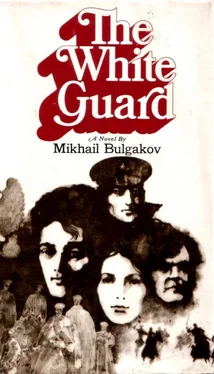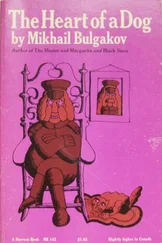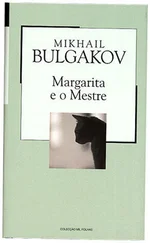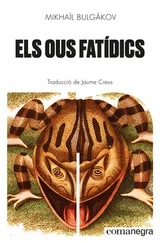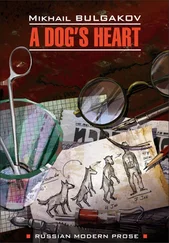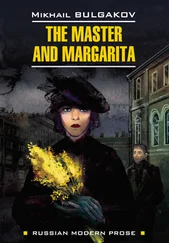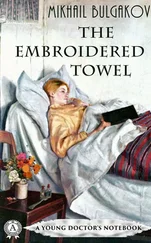MIKHAIL BULGAKOV - THE WHITE GUARD
Здесь есть возможность читать онлайн «MIKHAIL BULGAKOV - THE WHITE GUARD» весь текст электронной книги совершенно бесплатно (целиком полную версию без сокращений). В некоторых случаях можно слушать аудио, скачать через торрент в формате fb2 и присутствует краткое содержание. Жанр: Русская классическая проза, на английском языке. Описание произведения, (предисловие) а так же отзывы посетителей доступны на портале библиотеки ЛибКат.
- Название:THE WHITE GUARD
- Автор:
- Жанр:
- Год:неизвестен
- ISBN:нет данных
- Рейтинг книги:3 / 5. Голосов: 1
-
Избранное:Добавить в избранное
- Отзывы:
-
Ваша оценка:
- 60
- 1
- 2
- 3
- 4
- 5
THE WHITE GUARD: краткое содержание, описание и аннотация
Предлагаем к чтению аннотацию, описание, краткое содержание или предисловие (зависит от того, что написал сам автор книги «THE WHITE GUARD»). Если вы не нашли необходимую информацию о книге — напишите в комментариях, мы постараемся отыскать её.
Copyright © 1971 by McGraw-Hill Book Company.
Library of Congress Catalogue Card Number: 70-140252 08844
Printed in Great Britain
THE WHITE GUARD — читать онлайн бесплатно полную книгу (весь текст) целиком
Ниже представлен текст книги, разбитый по страницам. Система сохранения места последней прочитанной страницы, позволяет с удобством читать онлайн бесплатно книгу «THE WHITE GUARD», без необходимости каждый раз заново искать на чём Вы остановились. Поставьте закладку, и сможете в любой момент перейти на страницу, на которой закончили чтение.
Интервал:
Закладка:
And of course I have been to that house. Twice, in fact - the first time for a few minutes in passing, mainly to check whether or not this really was the right house, and the second time for longer.
In the novel the house is described with great precision. 'No. 13 was a curious building. On the street the Turbins' apartment was on the second floor, but so steep was the hill behind the house that their back door opened directly on to the sloping yard, where the house was brushed and overhung by the branches of the trees growing in the little garden that clung to the hillside. The backyards filled up with snow and the hill turned white until it became one gigantic sugar-loaf. The house acquired a covering like a White general's winter fur cap; on the lower floor (on the street side it was the first floor, whilst at the back, under the Turbins' verandah, it was the basement) the disagreeable Vasily Lisovich -an engineer, a coward and a bourgeois - lit his flickering little yellow lamps, whilst upstairs the Turbins' windows shone brightly and cheerfully.'
Nothing has changed since those days: the house, the yard, the sheds, the verandah and the stairs under the verandah leading down to the back door of 'Vasilisa's' apartment - Vasily Ivanovich Lisovich. On the street side it is the first floor, whilst in the backyard it is the basement. Only the garden has disappeared - the backyard is now entirely taken up with sheds.
As I have said, my first visit was a short one. I was with my mother and a friend, we had come by car, and we had little time to spare. Having entered by the backyard, I timidly rang the bell on the left-hand one of the two doors giving on to the verandah and asked the fair-haired middle-aged lady who opened it whether some people called Turbin had once lived here. Or rather Bulgakov.
The lady stared at me in some astonishment and said, yes, they did live here once, very long ago, but why should I be interested in them? I said that Bulgakov was a famous Russian writer and that everything connected with him . . .
Her face showed even greater astonishment.
'What? Mishka Bulgakov - a famous writer? That incompetent venereologist - a famous Russian writer?'
With that I became dumb with embarrassment, and it was only later that I realised that the lady was not astonished at the incompetent venereologist becoming a writer (she knew that), but that he had become famous . . .
But this only came out during my second visit. This time only two of us went and we had all the time we needed.
When we rang, a young girl's voice rang outfrom the depths of the apartment:
'Mama, it's two men . . .'
Mama - the same middle-aged blond woman - appeared, and after a momentary pause of recognition and appraisal (for some reason she failed to recognise me at first), she said kindly:
'Please come in. Here, into the drawing-room. It was their drawing-room. And that was the dining-room. We have had to divide it with a partition, as you can see . . .'
Judging from the plaster mouldings on the ceiling, the former dining-room had once been very big and obviously comfortable;
now it served as both hall and kitchen. A handsome gas stove stood against the right-hand partition wall.
We went into the drawing-room, and the lady of the house excused herself for going on with her work - she was ironing net curtains, admittedly not very energetically, on a long ironing board - and invited us to sit down.
The drawing-room was obviously furnished in a most un-Turbinlike, or rather un-Bulgakovlike fashion. The three windows, giving on to the street and looking over to the hill on the far side where the grass was just beginning to sprout, were curtained to sill height, and there were flowers on the window ledge - a riot of mauve in little vases. All the rest - as it is everywhere in Kiev nowadays - was 'contemporary' furniture of the early 'fifties made at the Lvov factory together with some pieces of what is known locally as 'Bozhenko' furniture. (A hero of the civil war and companion-in-arms of the legendary partisan leader Shchors, Bozhenko, alas, is nowadays associated in the minds of most Kievans only with the mediocre furniture turned out by the factory that was named after him.) On the wall was some vaguely Japanese design on black lacquer (were they herons?), and by the doorway a gleaming piano in imitation walnut.
We sat down. The blond lady asked us what it was that we wanted to know, and we replied that we were interested in everything about this apartment which had been connected with the life of Mikhail Afanasievich Bulgakov.
From the account that followed, interrupted first by the appearance of the silent husband looking for something in a cupboard, then by the incursion of two grandsons who were immediately chased out again ('Run along, this is nothing to do with you'), we learned that the Bulgakov family was a large one: the father - a professor of theology who had apparently died some time before the revolution; the mother-very houseproud and orderly; and seven children - three brothers, of whom Mikhail was the eldest, and four sisters. They had lived in this apartment for more than twenty years and had left in 1920. After that none of them had ever come back, including Mikhail. The family was patriarchal, run on
firm lines. Then with the death of their father everything had changed. The mother, as far as we could gather, had moved elsewhere: 'Up at the top of the street, opposite St Andrew's church, there lived a doctor, a very decent man, he died not long ago as a very old man in Alma-Ata', and after that untidiness and confusion had reigned in the house.
'They were very noisy and cheerful. And the place was always full of people. Singing, drinking, always talking at once and trying to shout each other down . . . The gayest of all was Misha's second sister. The older sister was quieter and more serious, she was married to an officer. His surname was something like Kraube - he was German by origin.' (Ah, we thought: Talberg . . .) 'They were expelled after the revolution and neither of them are alive now. But the second sister - Varya - was a delightful creature: she sang well, played the guitar . . . and whenever the noise got unbearable she would climb up on a chair and write "Quiet!" on the stove.'
'On this stove?' We turned round at once and looked at the corner, involuntarily recalling the erstwhile scribbles and inscriptions on it, especially the last one written by Nikolka:
'I hereby forbid the scribbling of nonsense on this stove. Any comrade found guilty of doing so will be shot and deprived of civil rights.
signed: Abraham Goldblatt,
Ladies, Gentlemen's and Women's Tailor. Commissar, Podol District Committee. 30th January 1918.'
'No,' said the lady, 'on the stove in the dining-room. I'll show you on your way out.'
For the rest of the time she told us about Misha himself. Somehow the story began with his teeth. He had very strong teeth. ('Yes, yes,' added the husband who had sat down on a chair in the corner, 'he had very strong teeth.') Misha was tall, fair, with bright blue eyes. He was always tossing back his hair. Like this - with his head. And he walked very fast. No, they had not been friends, he had been considerably older, at least twelve years older than her.
She had been friends with the youngest sister, Lyolya. But she remembered Misha very well. And his character - sarcastic, ironic, caustic. Not an easy person to get on with, on the whole. One day he had even insulted her father, for no reason at all.
'Misha's consulting-room was in there.' The blonde lady pointed to the wall in front of her. 'That's where he saw his syphilitic patients. You know, of course, that after he qualified he went on to specialise in venereology. Yes, and for some reason the faucets in his consulting-room were always running. And his basin was always overflowing. And seeping through the floor, so that the water dripped on to our heads . . .'
Читать дальшеИнтервал:
Закладка:
Похожие книги на «THE WHITE GUARD»
Представляем Вашему вниманию похожие книги на «THE WHITE GUARD» списком для выбора. Мы отобрали схожую по названию и смыслу литературу в надежде предоставить читателям больше вариантов отыскать новые, интересные, ещё непрочитанные произведения.
Обсуждение, отзывы о книге «THE WHITE GUARD» и просто собственные мнения читателей. Оставьте ваши комментарии, напишите, что Вы думаете о произведении, его смысле или главных героях. Укажите что конкретно понравилось, а что нет, и почему Вы так считаете.
